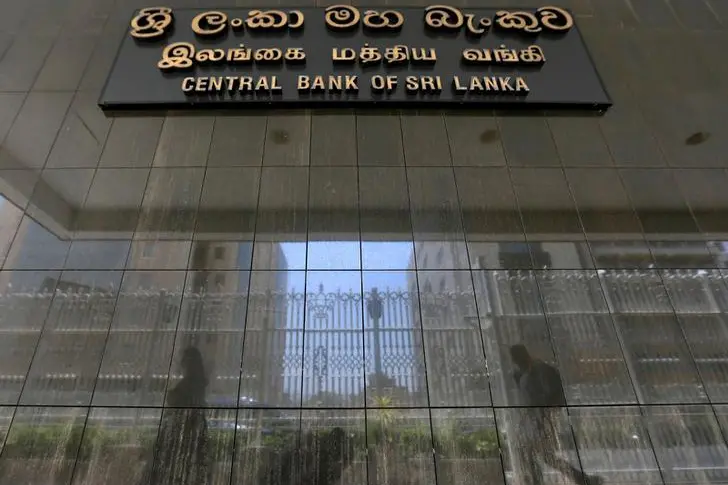PHOTO
COLOMBO - Sri Lanka's central bank left its key interest rates unchanged on Monday, a widely expected move to boost an economy struggling in the wake of a political crisis.
The economy took a battering in the fourth quarter, with annual growth slowing to a 17-year low in 2018 as a weeks-long political crisis and past policy tightenings sapped business confidence and cooled investment.
The rupee, which fell to a record low in early January, has strengthened by more than 4.5 percent since then, giving policymakers some room to address growth concerns.
"A gradual recovery in growth is expected over the medium term, supported by the favourable medium term inflation outlook together with the competitive exchange rate," the central bank said in a statement.
"However, the continued low growth further emphasises the need for implementing growth enhancing structural reforms expeditiously," the bank added.
It said policy interest rates could be reduced in the period ahead, given well anchored inflation and inflation expectations, and if current trends continued in global financial markets and in Sri Lanka's trade balance and credit growth.
The central bank kept the standing lending facility rate (SLFR) at 9.00 percent and the standing deposit facility rate (SDFR) at 8.00 percent, as predicted by economists in a Reuters poll.
The decision comes after an unexpected move in February to cut banks' Statutory Reserve Ratio (RRR) by 100 basis points to spur credit growth after a political crisis triggered credit downgrades by all three major global rating agencies.
That followed a move to raise the SDFR by 75 bps and the SLFR by 50 bps in November, which was also accompanied by a reduction in the SRR by 150 bps to 6.00 percent.
Government finances remain shaky, and the island nation has a heavy external debt repayment schedule between 2019 and 2022.
The International Monetary Fund (IMF) reached an agreement with Sri Lanka last month to extend a $1.5 billion loan facility for an extra year. Prime Minister Ranil Wickremesinghe's government has boosted state spending in a 2019 budget to support the economy and woo voters before two key elections.
"The central bank sounded a dovish tone with its statement, hinting at a possible rate cut in its upcoming reviews fuelled by low inflation and easing private sector credit growth," said Trisha Peries, product head of economic research at Frontier Research.
"It also appears to expect more structural reforms to be carried out to encourage economic growth rather than purely a lower rates driven growth," she said.
President Maithripala Sirisena's abrupt change of prime minister in October and his decision to dissolve parliament created panic among investors. The move was later ruled unconstitutional and Wickremesinghe was reinstated.
A presidential vote is expected later this year followed by a general election in 2020.
(Reporting by Shihar Aneez and Ranga Sirilal) ((shihar.aneez@thomsonreuters.com; +94-11-232-5540; Reuters Messaging: shihar.aneez.thomsonreuters.com@reuters.net twitter:@shiharaneez))





















